Michael Jordan's Hall of Fame Career
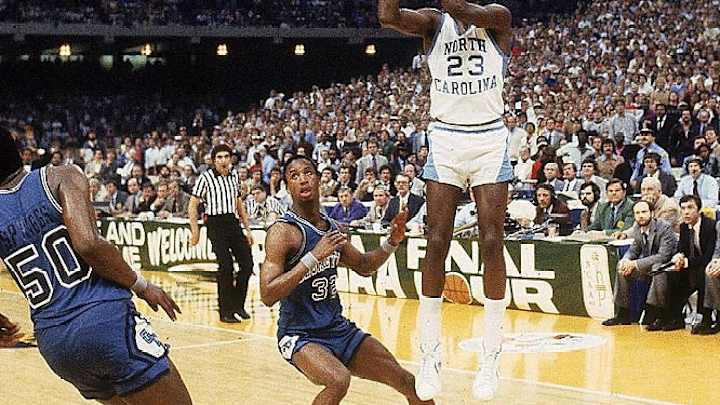
Michael Jordan's Hall of Fame Career

Hall of Famer Michael Jordan raised his national profile when, as a freshman, he made the go-ahead jumper in the closing seconds of North Carolina's 63-62 victory against Georgetown in the 1982 national championship game.
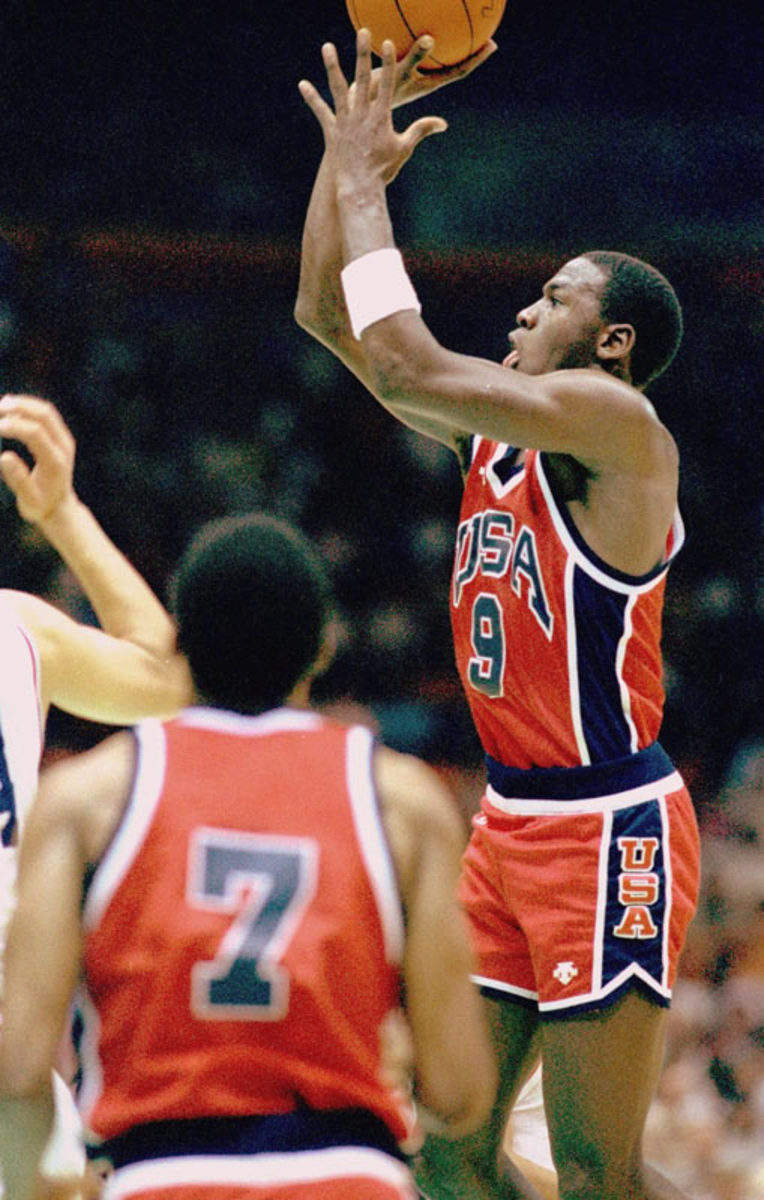
In 1984, Jordan was the consensus college player of the year, the leading scorer on the gold-medal-winning U.S. Olympic team and the third pick in the NBA draft. The Bulls selected Jordan after the Rockets took Hakeem Olajuwon at No. 1 and the Trail Blazers chose Sam Bowie at No. 2.
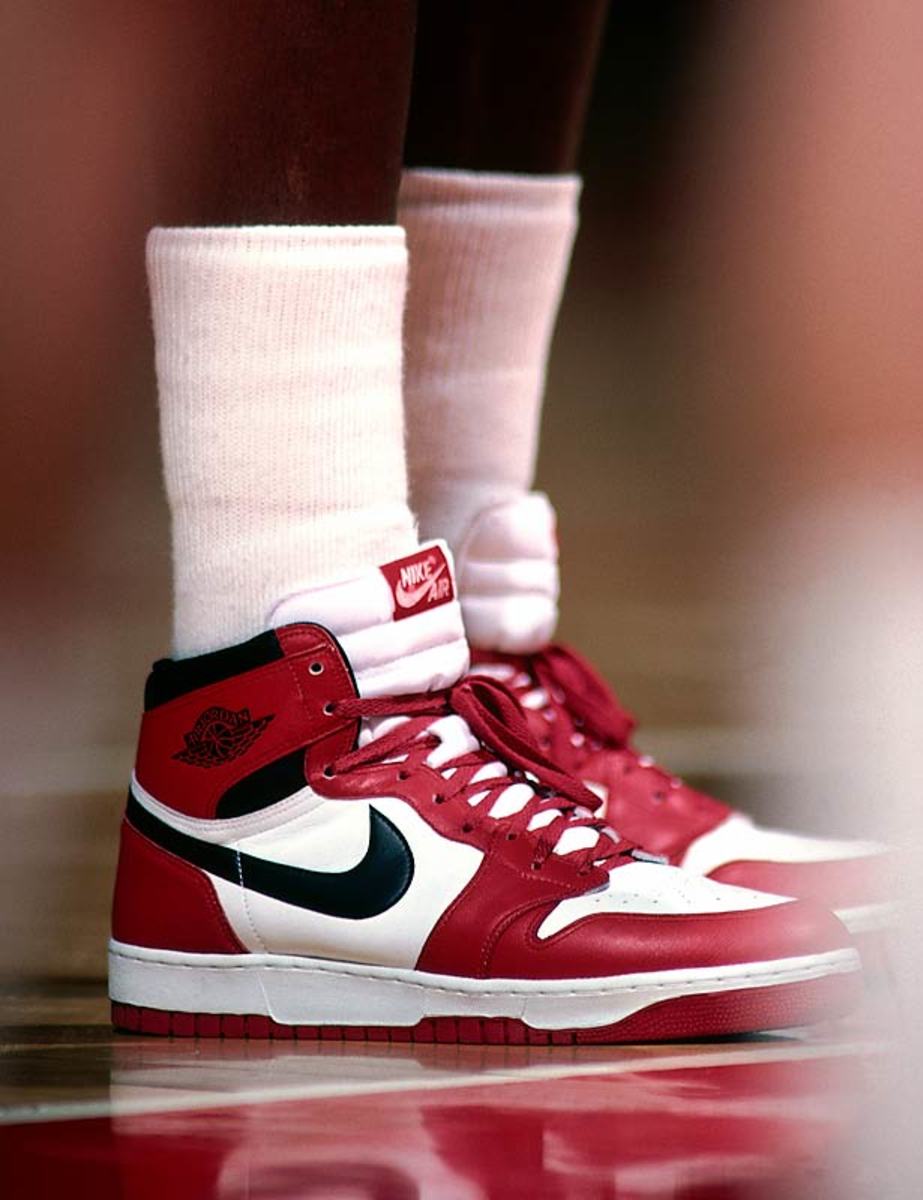
Jordan signed a five-year, $2.5 million endorsement deal with Nike in 1984. The partnership proved incredibly successful for both parties, with the superstar creating a brand and Nike reaping the rewards from its line of Air Jordan sneakers and other Jordan-related products.
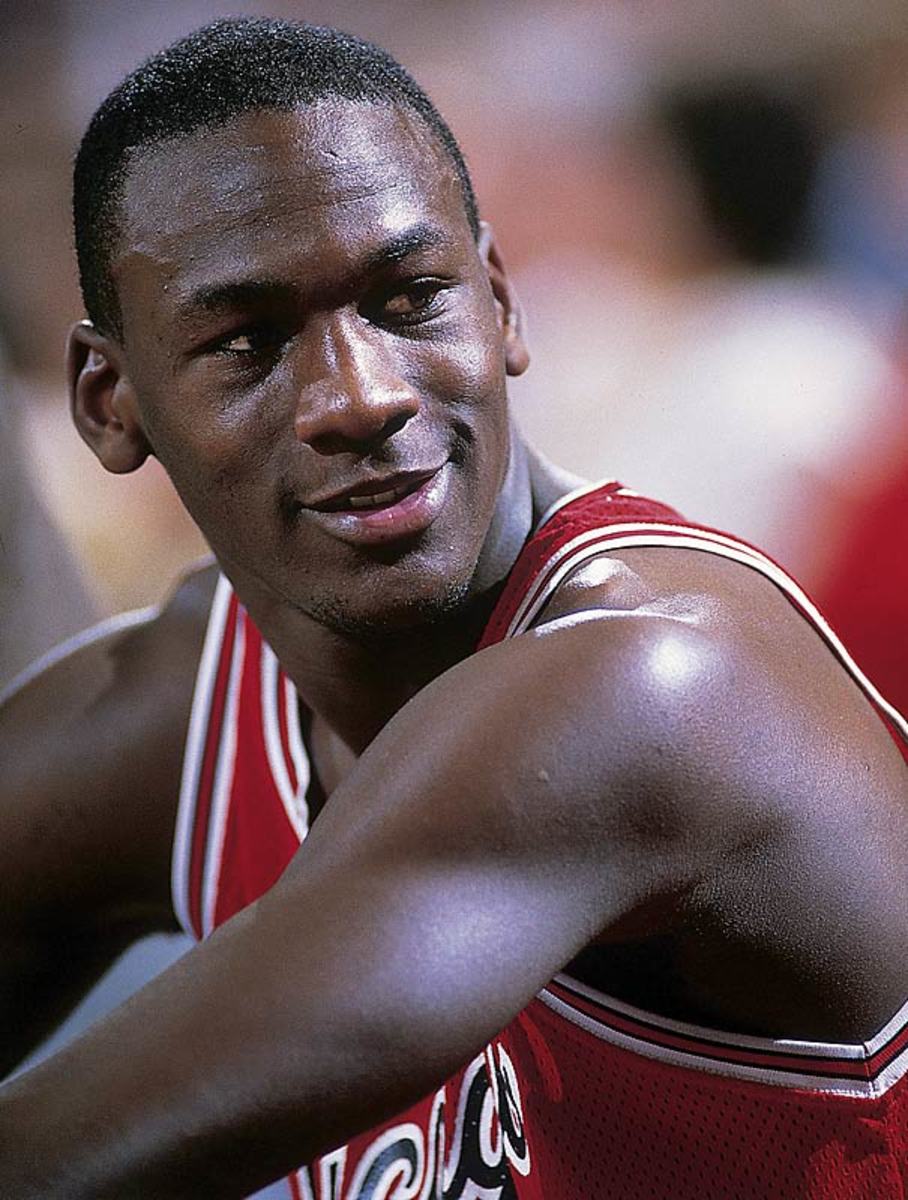
Jordan was named 1984-85 Rookie of the Year after averaging 28.2 points, 6.5 rebounds and 5.9 assists in leading the Bulls to an 11-game improvement (38 victories from 27). Chicago lost to Milwaukee in the first round of the playoffs.
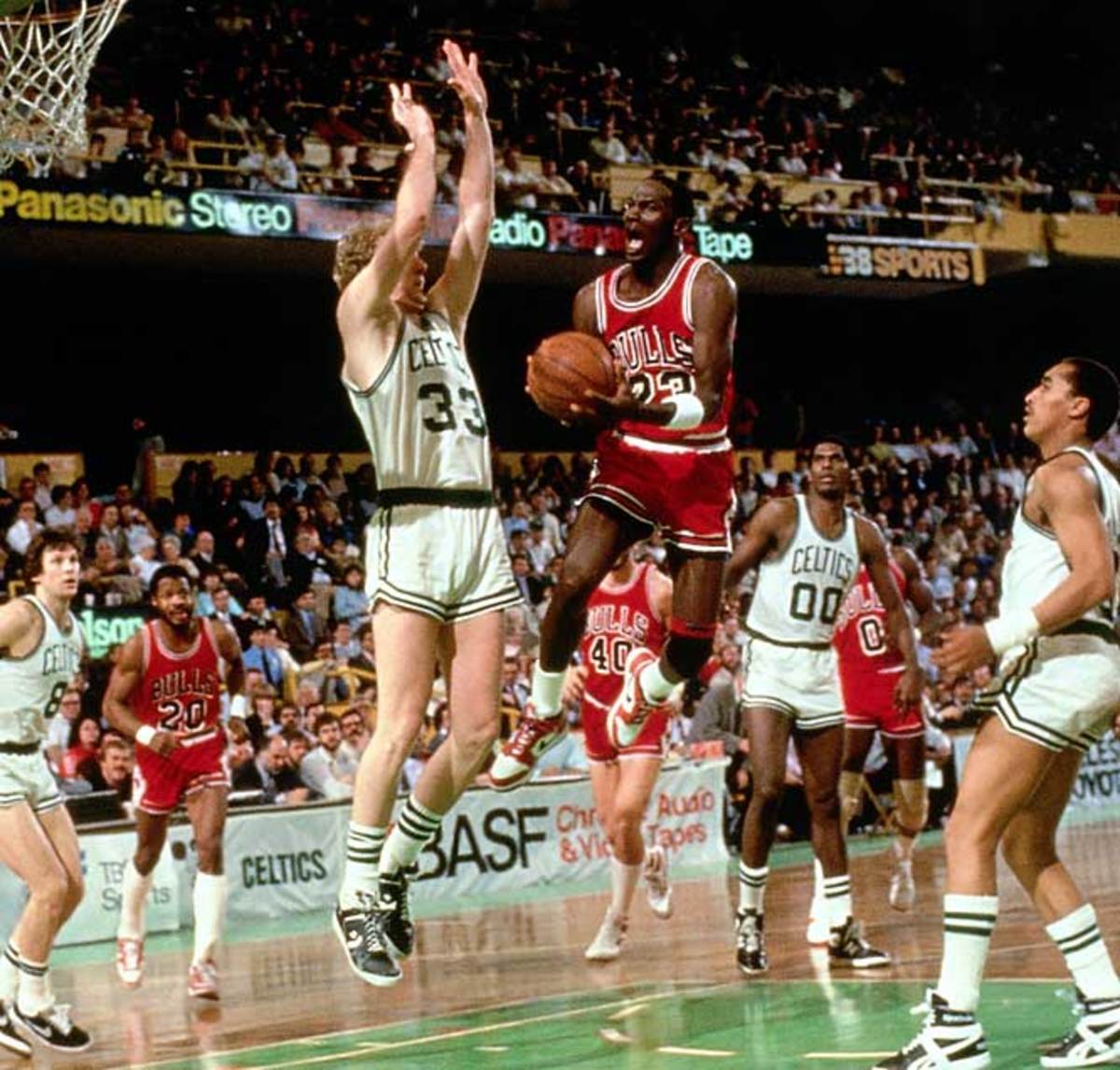
After breaking his foot in the third game of his second season, Jordan returned in time for a first-round playoff series against the Celtics. In Game 2, Jordan scored a playoff-record 63 points in the Bulls' 135-131 double-overtime loss at Boston Garden. "God disguised as Michael Jordan," said Larry Bird, whose Celtics swept Chicago in three games.
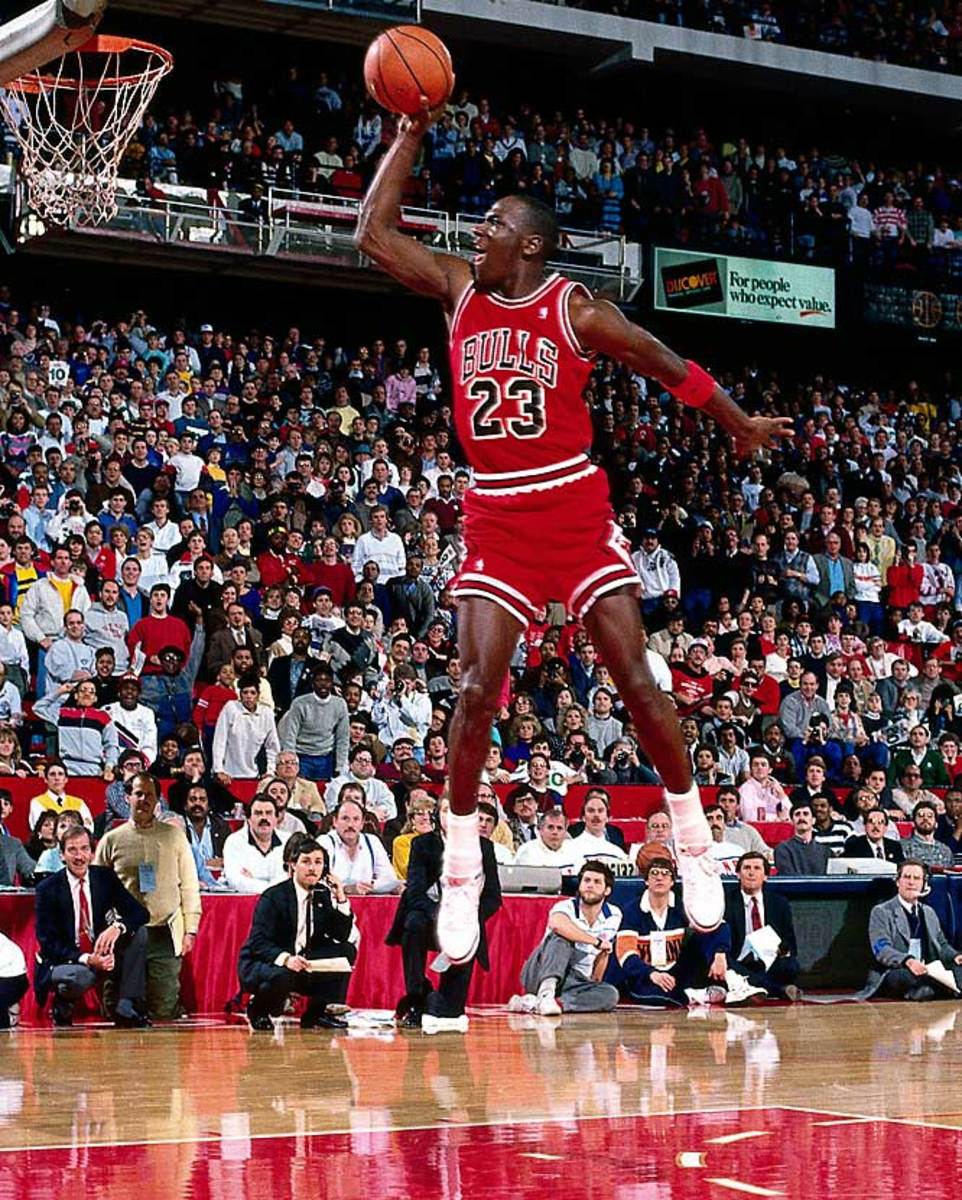
In what's widely regarded as the best dunk contest of all time, Jordan edged Dominique Wilkins in the 1988 event in Chicago. Later that year, Jordan won his first MVP award and lifted Chicago past Cleveland in a first-round series before he and the Bulls were roughed up by the Bad Boy Pistons in the conference semifinals.
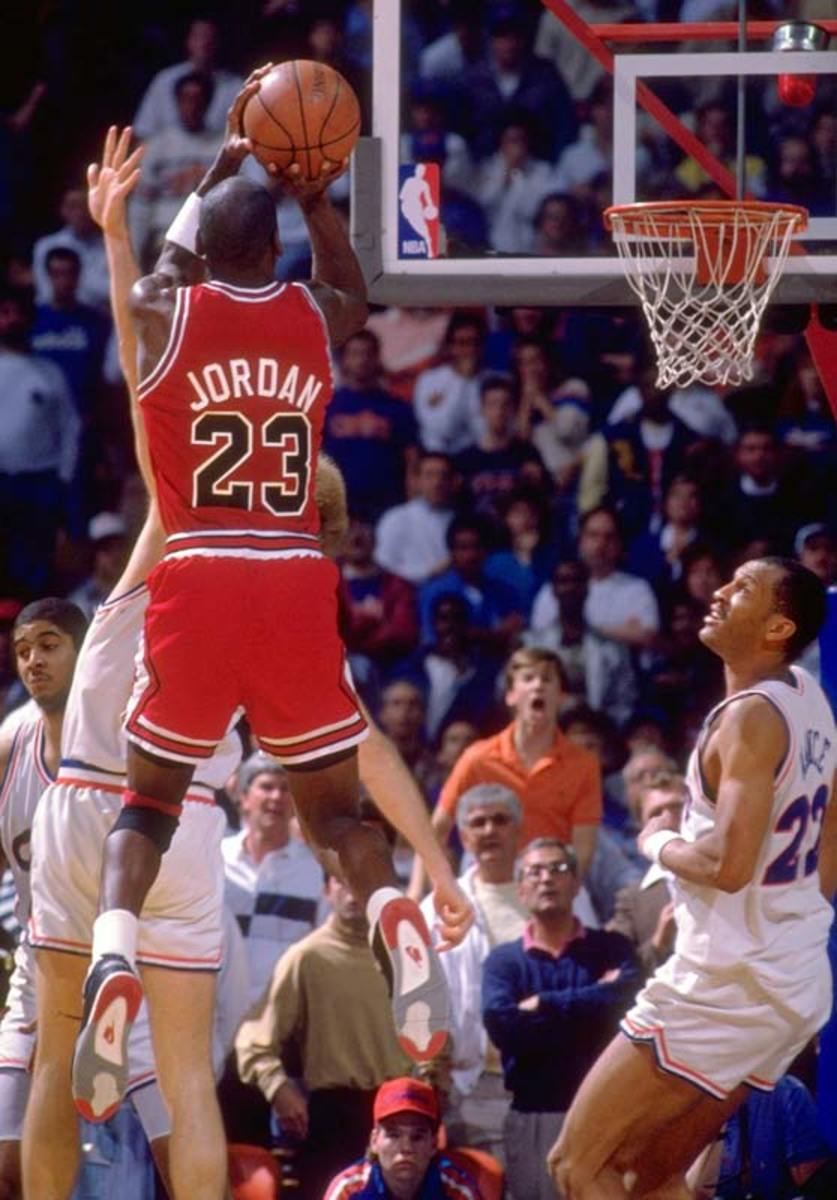
The Bulls eliminated Cleveland in the first round in 1989, too, thanks to The Shot, Jordan's game-winning foul-line jumper at the buzzer over Craig Ehlo in the decisive Game 5. Chicago went on to beat New York in the second round but lost to Detroit in the conference finals. Coach Doug Collins was fired after the season and replaced by Phil Jackson.
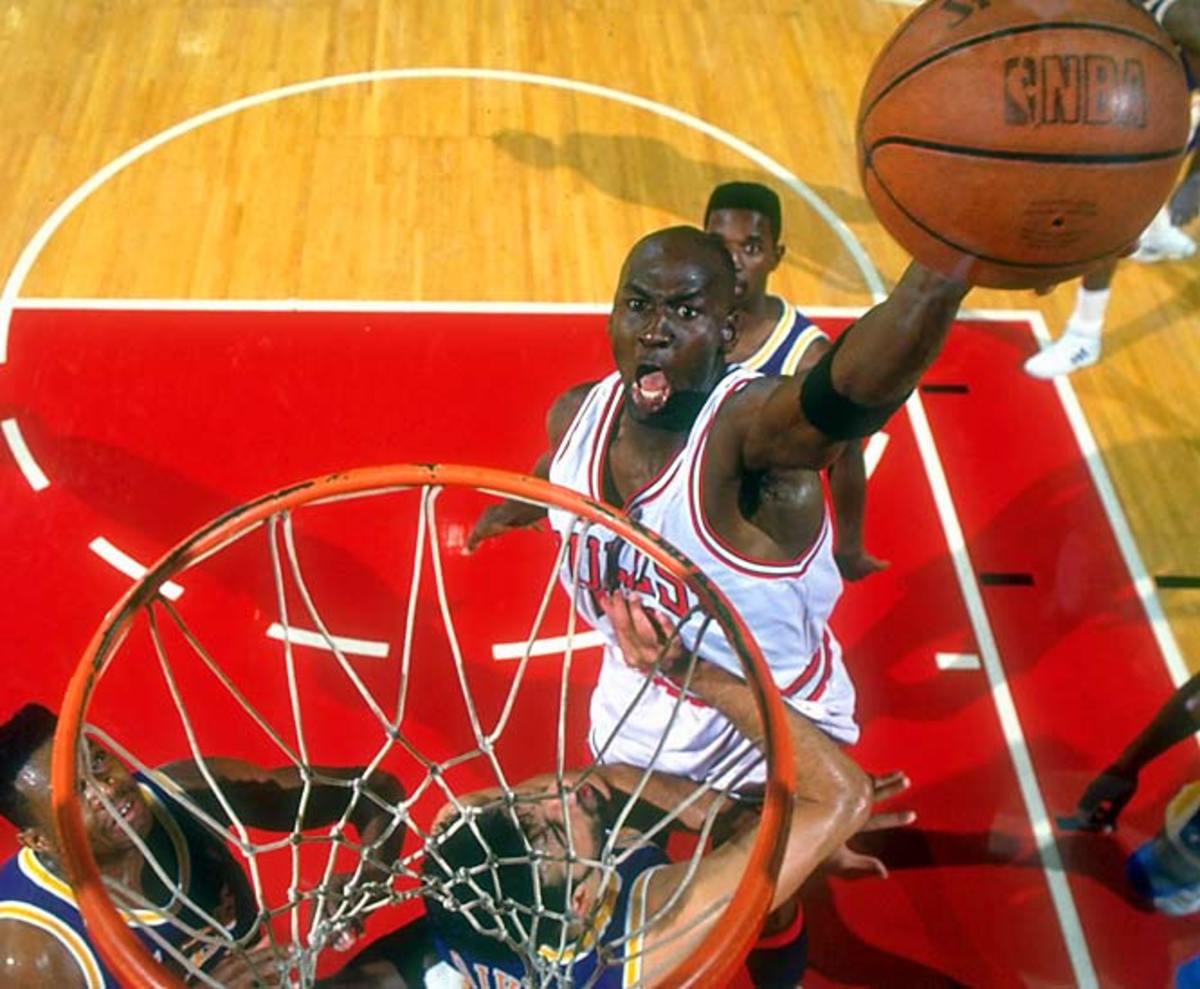
In 1990-91, with Phil Jackson in his second season on the bench, Scottie Pippen entering his prime and Jordan grabbing regular-season and Finals MVP awards, the Bulls won their first championship in franchise history.

The Bulls repeated as champions in 1991-92. Jordan set the tone in the NBA Finals against Portland, hitting six three-pointers and scoring 35 points in the first half of Game 1.
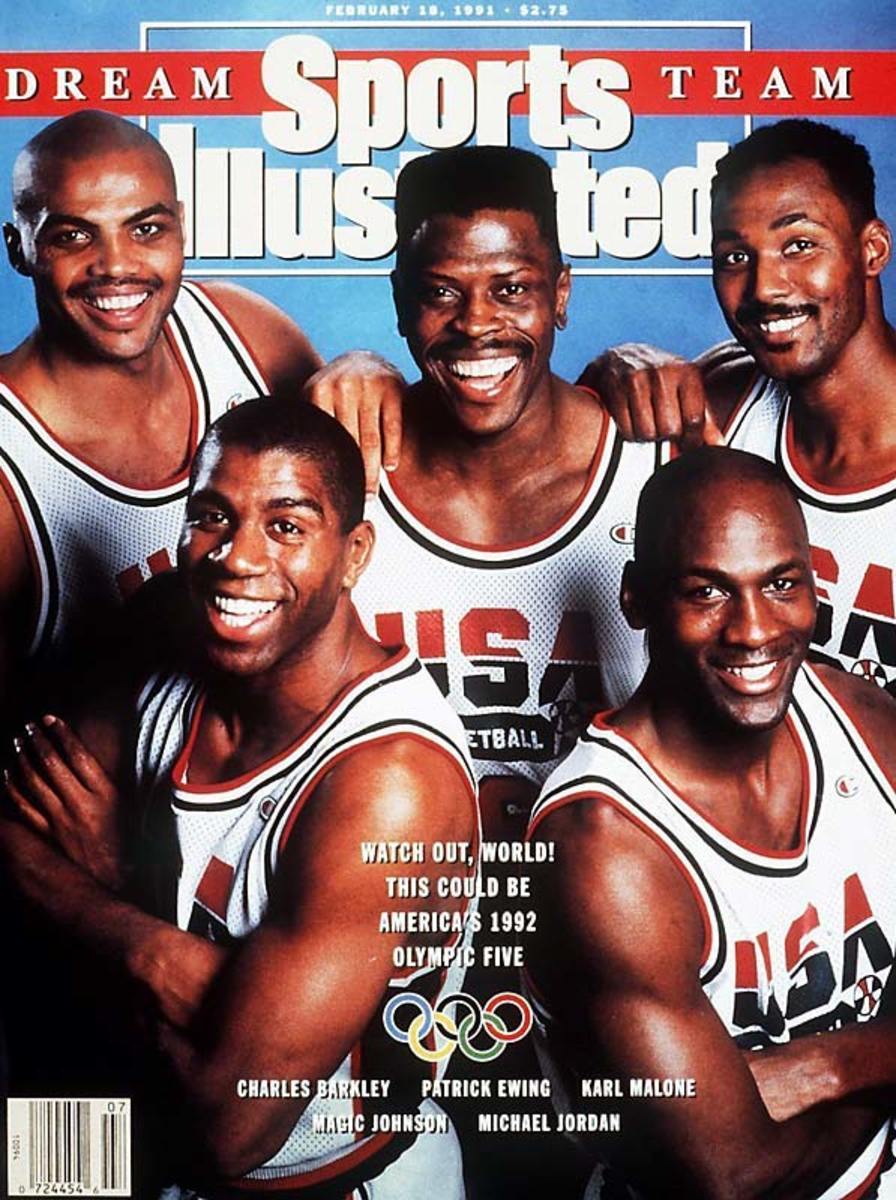
The Dream Team, featuring Jordan, Magic Johnson, Larry Bird and other All-NBA players, won the Olympic gold medal in 1992. Widely considered the greatest sports team ever assembled, the U.S. squad dominated foes nightly by 40 points, traveled like rock stars and dazzled budding NBA fans as a marketing tool to grow the sport globally.
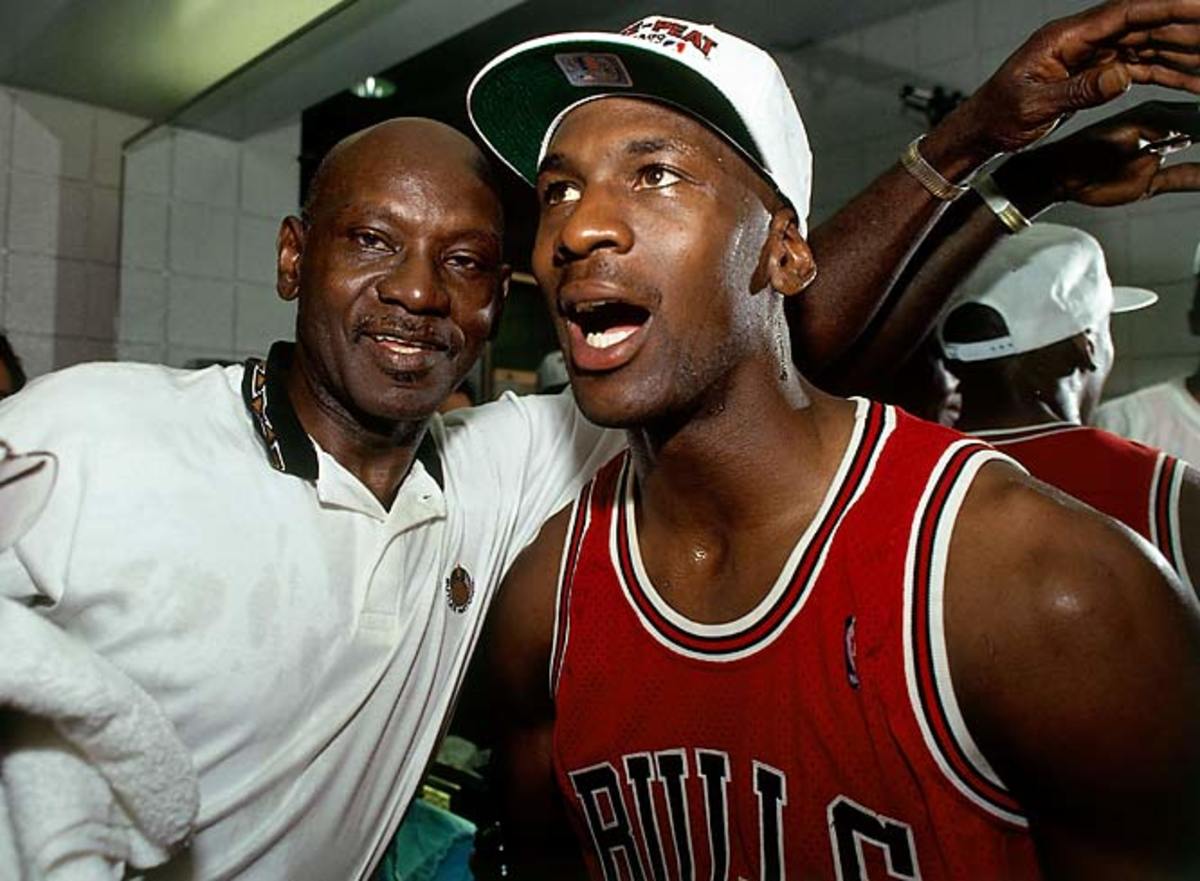
In July 1993, just a month after the Bulls won their third consecutive championship, Jordan's father, James, was murdered in North Carolina. Two 18-year-old men were convicted in the slaying.
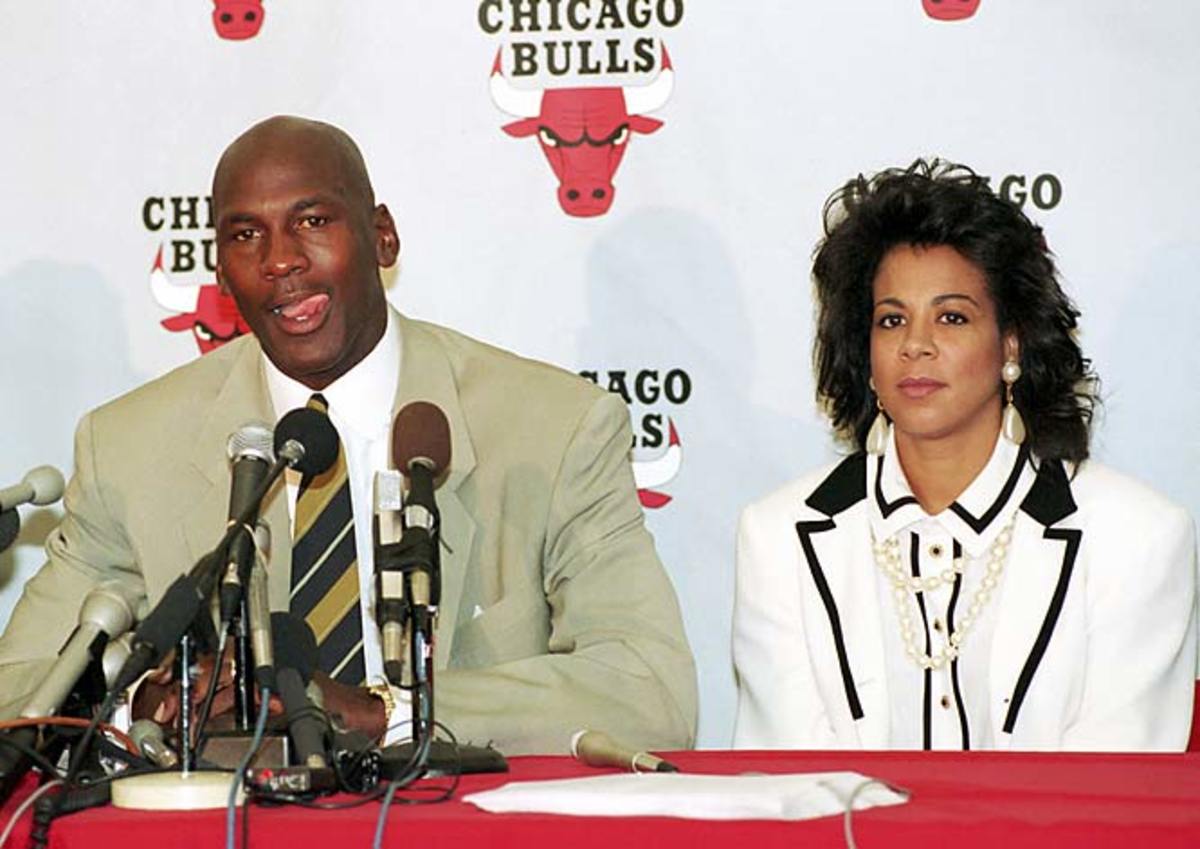
Saying "the desire just isn't there," Jordan announced the first of his three NBA retirements on Oct. 6, 1993. The stunning move came amid persistent questions about his high-stakes gambling and occurred shortly after the shooting death of his father.

On Feb. 7, 1994, Jordan signed a minor league deal with the Chicago White Sox. Jordan said he was fulfilling his father's dream by becoming a baseball player. Playing right field for the Double-A Birmingham Barons that season, the 31-year-old Jordan batted .202 with three home runs, 51 RBIs and 30 stolen bases in 127 games.
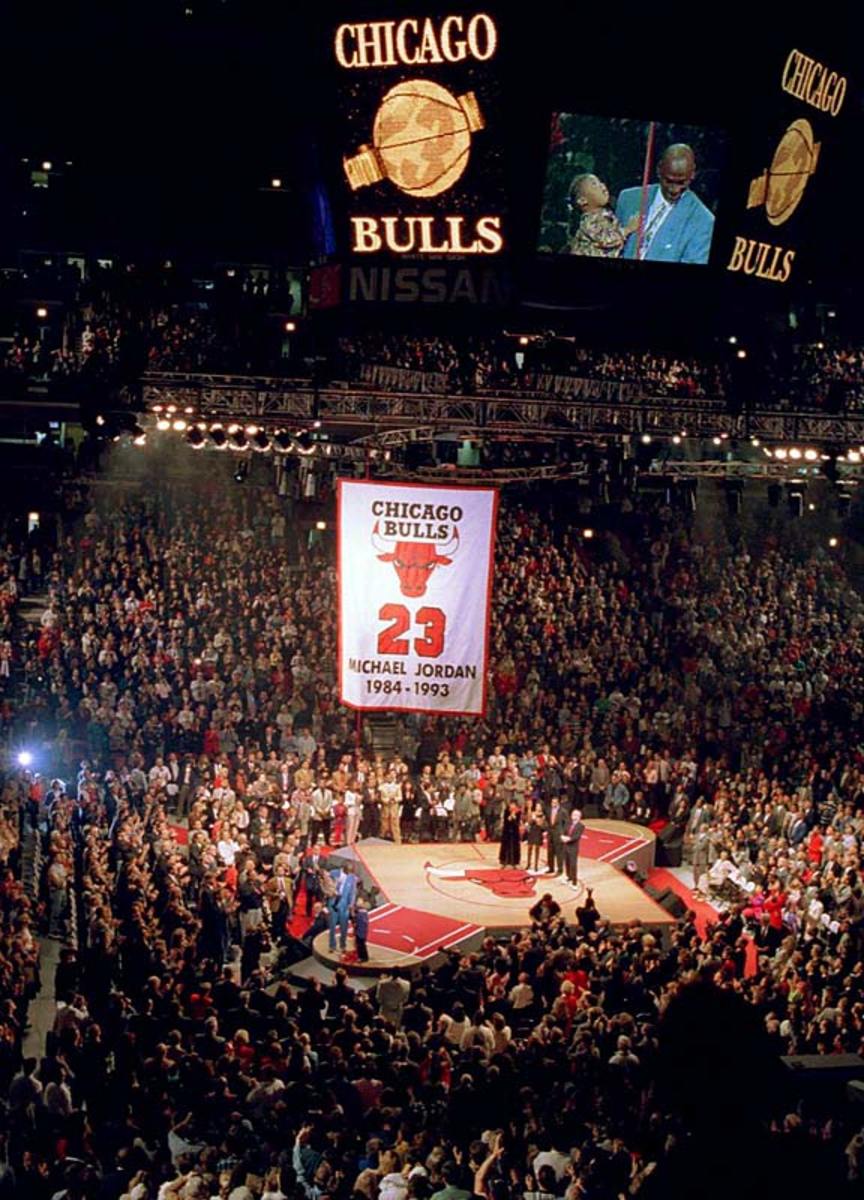
A year after Jordan first called it quits from the NBA, the Bulls retired his No. 23 jersey and unveiled his statue outside the United Center.
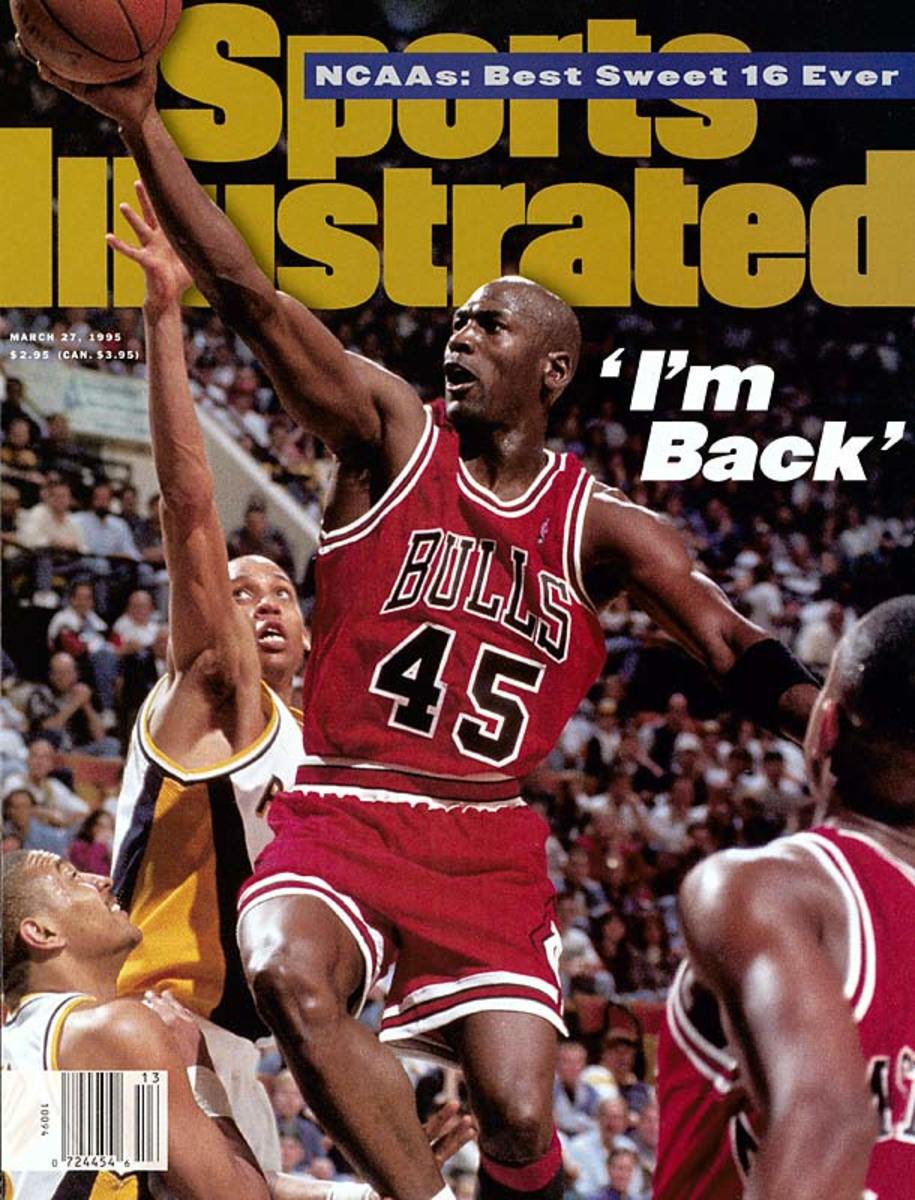
"I'm back," Jordan announced via fax in March 1995. Wearing No. 45, Jordan played his first NBA game since his return at Indiana on March 19, scoring 16 points (on 7-of-28 shooting) in 38 minutes in the Bulls' overtime loss.
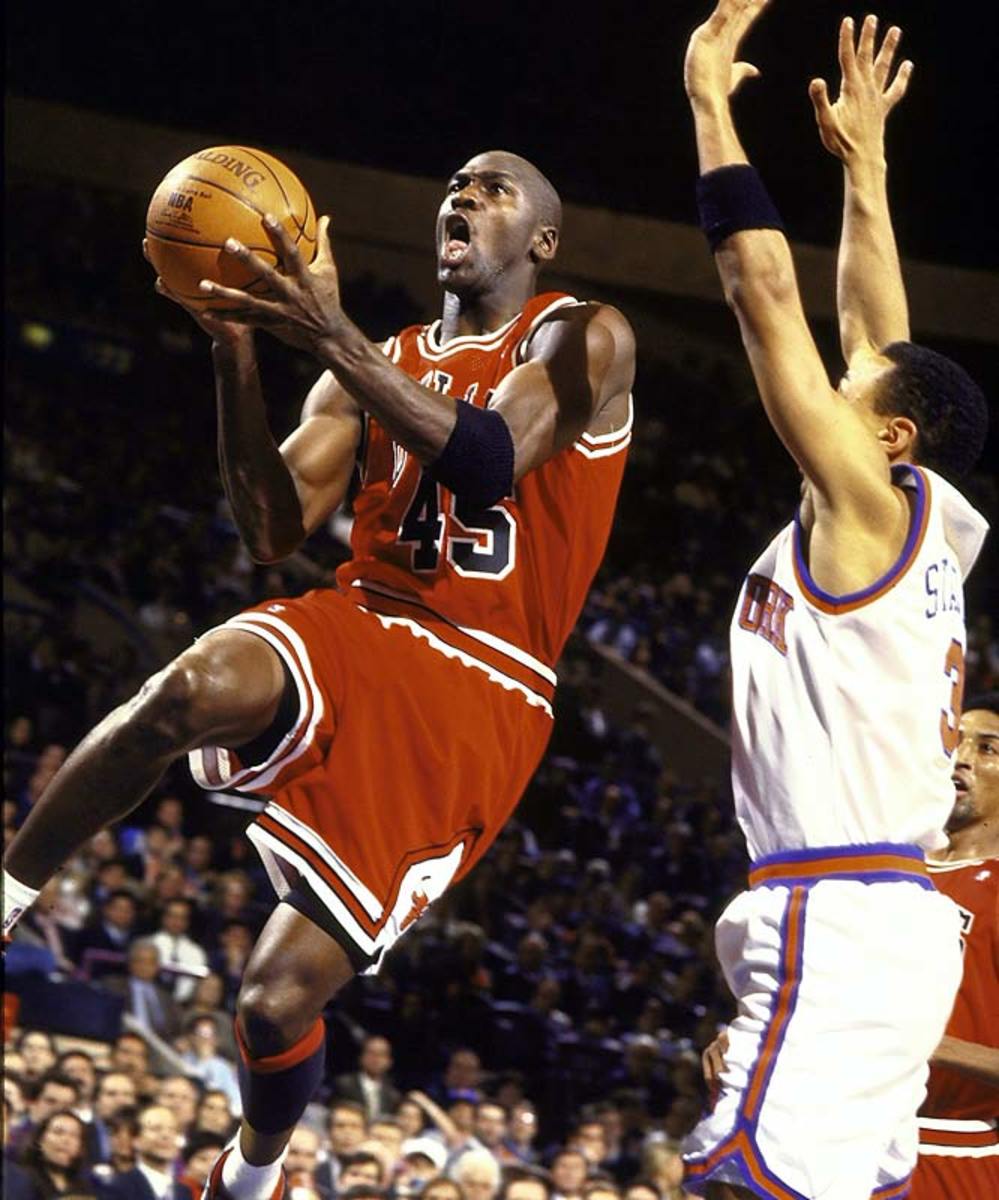
In his fifth game back, Jordan scored 55 points against the Knicks at Madison Square Garden on March 28, 1995. Jordan also fed Bill Wennington for the game-winning basket in Chicago's 113-111 victory.
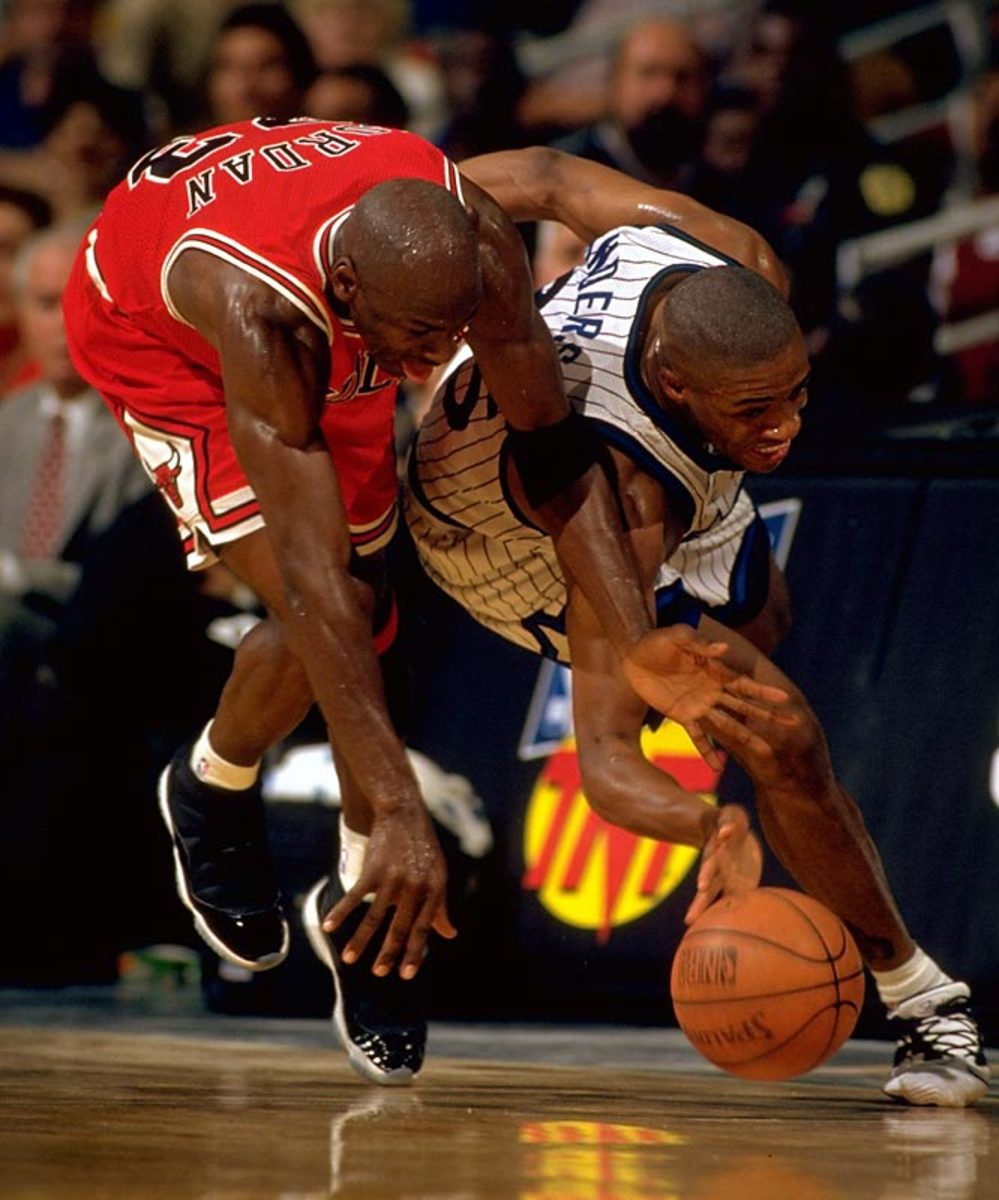
Jordan's comeback season ended with a second-round playoff defeat to Orlando, perhaps remembered most for Jordan's miscues down the stretch in Game 1, which included a steal by Nick Anderson when the Bulls were nursing a one-point lead. This marked the first time since 1990 that a Jordan-led Bulls team lost a postseason series.
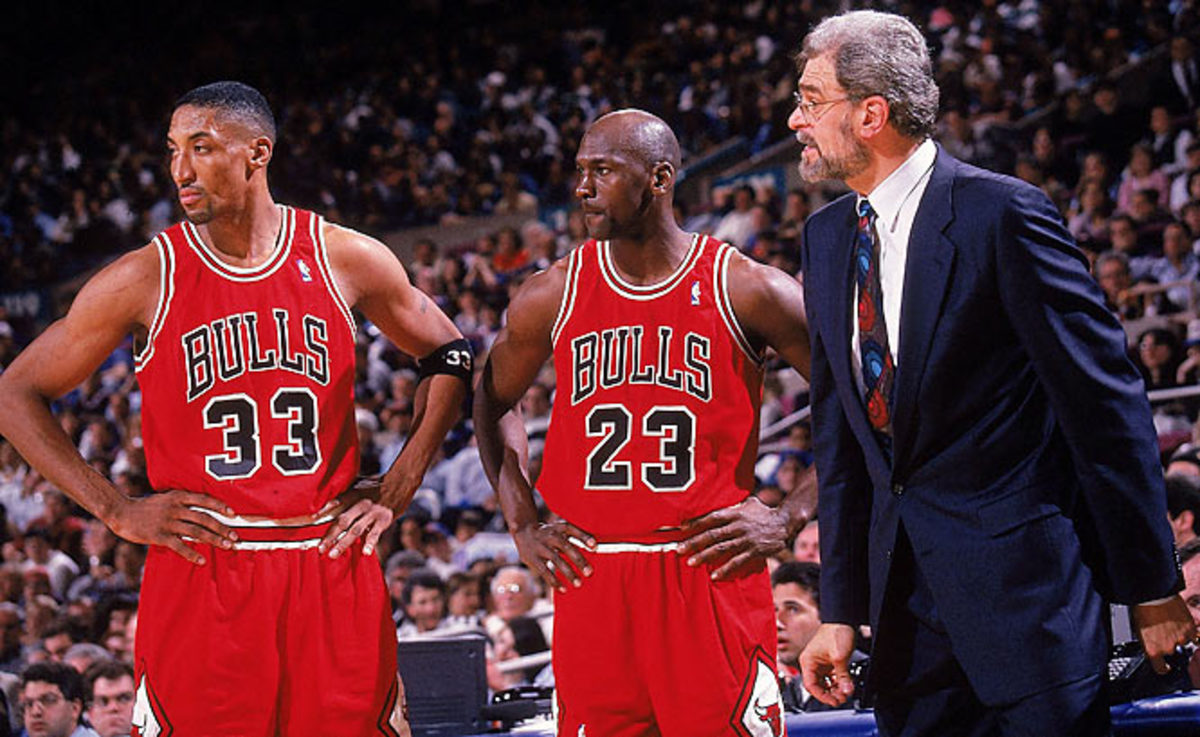
In Jordan's first full season since his return, the Bulls (72-10) became the first team in NBA history to win at least 70 games. Jordan was the regular-season MVP, the All-Star MVP and the Finals MVP
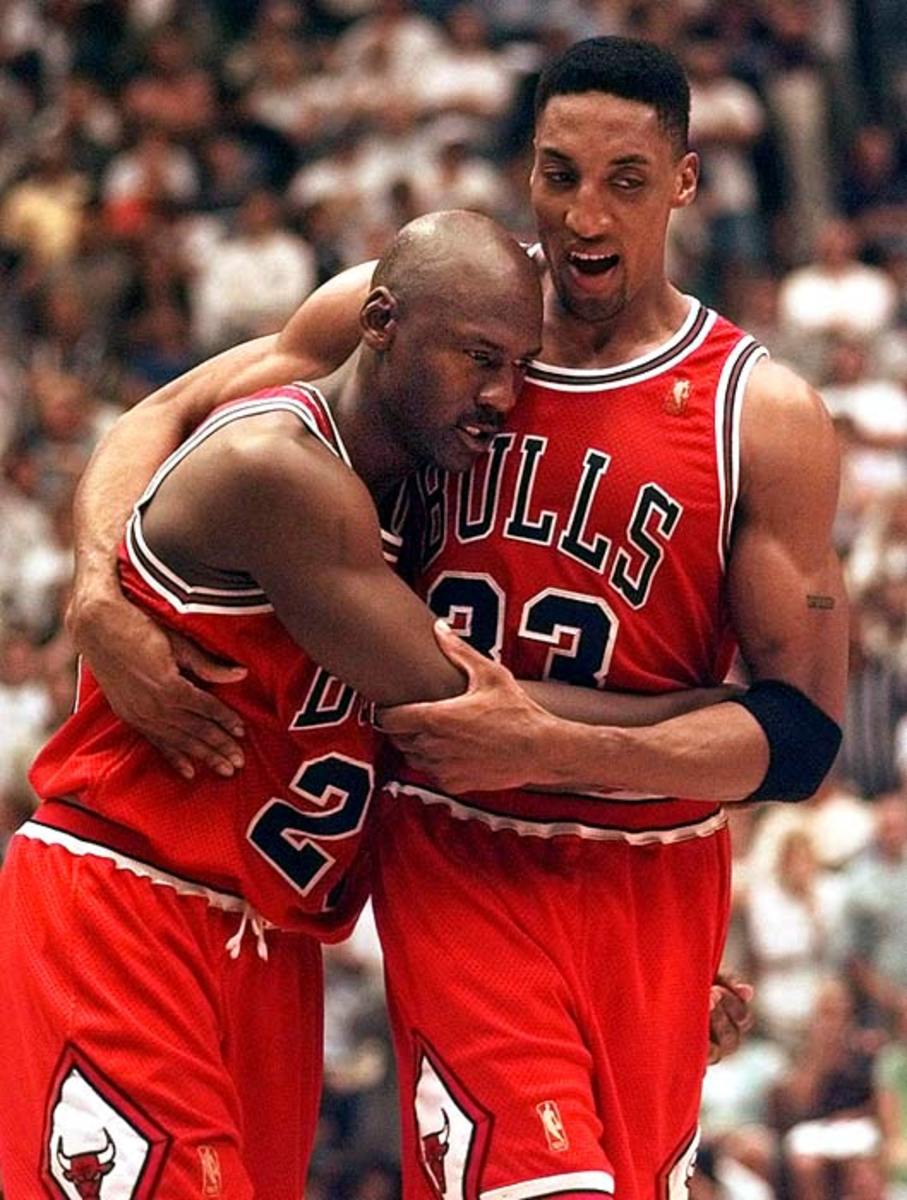
With the 1997 NBA Finals tied at 2-2, a flu-ridden Jordan scored 38 points in Chicago's victory in Game 5 at Utah. The Bulls won Game 6 to clinch their fifth championship.
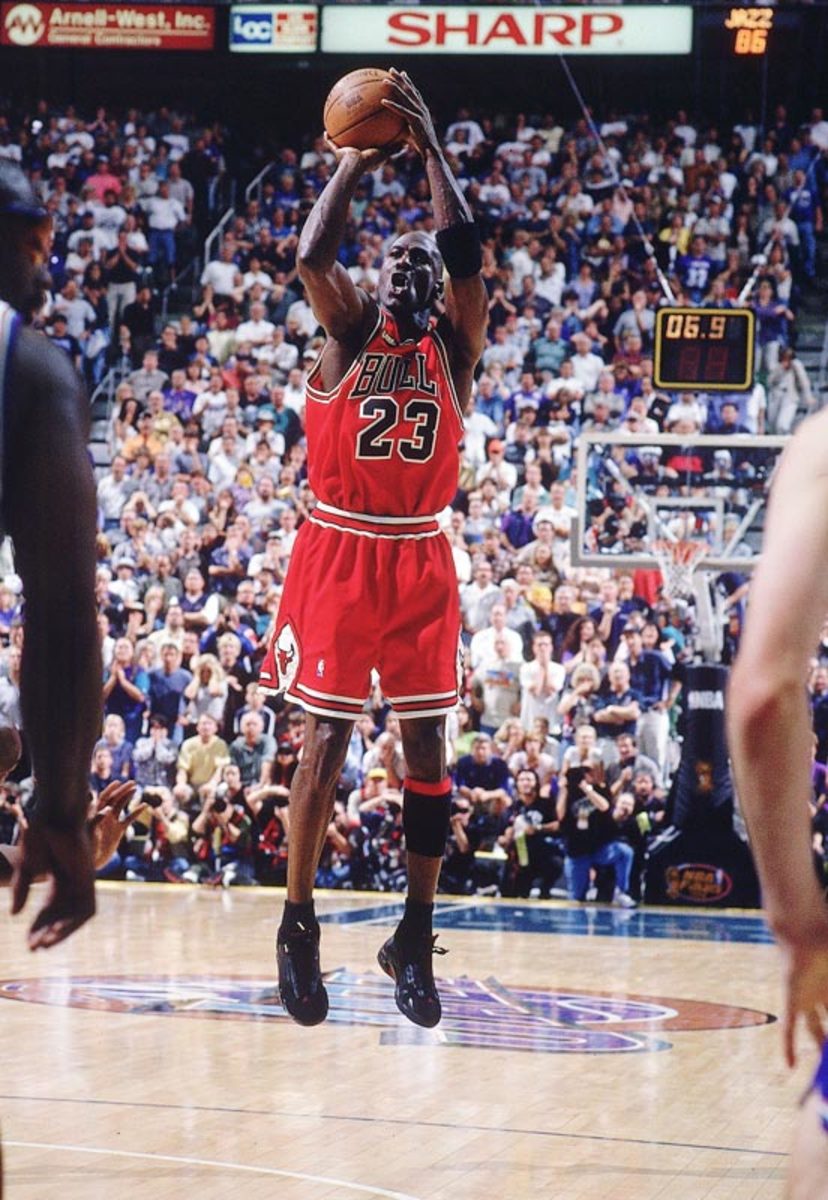
Jordan's last game as a Bull, on June 14, 1998, proved to be a memorable one. He made a key steal and nailed the game-winning shot over Utah's Bryon Russell to punctuate a 45-point performance as the Bulls wrapped up their six title and second three-peat.
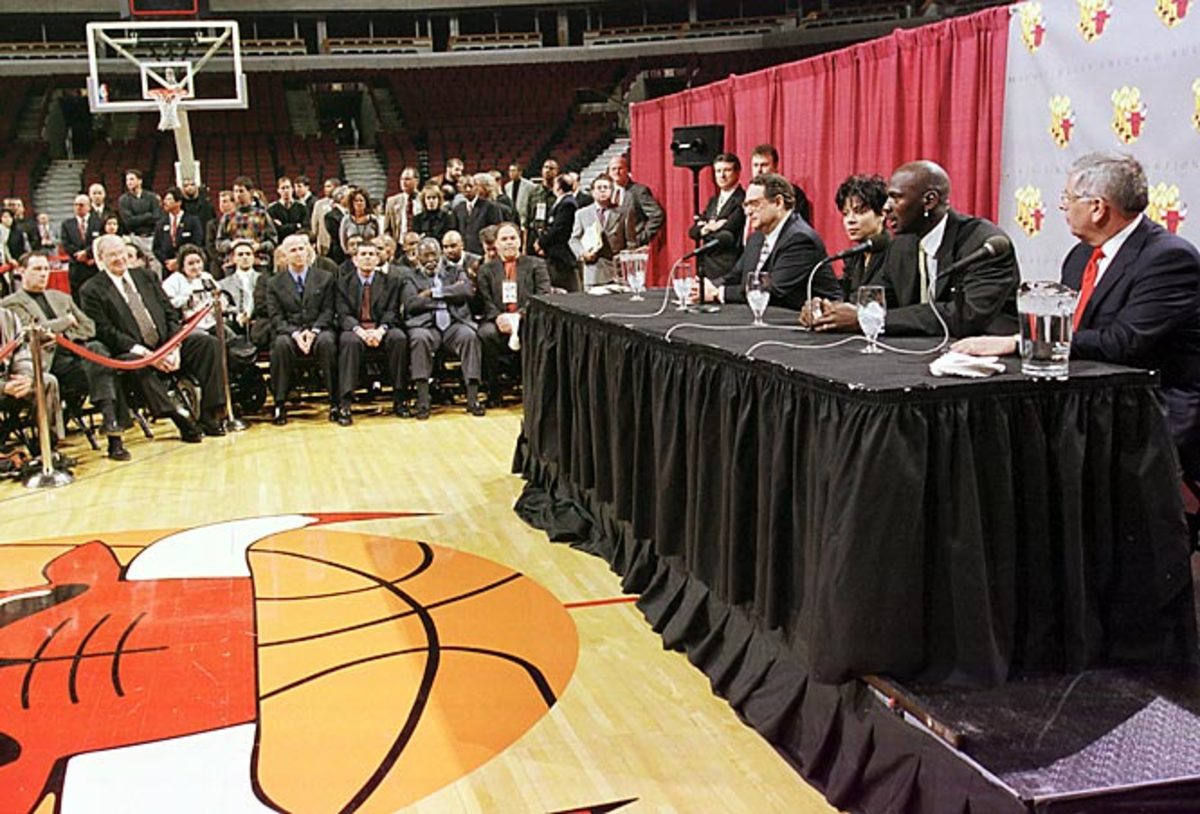
"Mentally, I'm exhausted," Jordan said in announcing his retirement Jan. 13, 1999, after 13 NBA seasons. Jordan said he was "99.9 percent" sure that his second retirement would be his last.
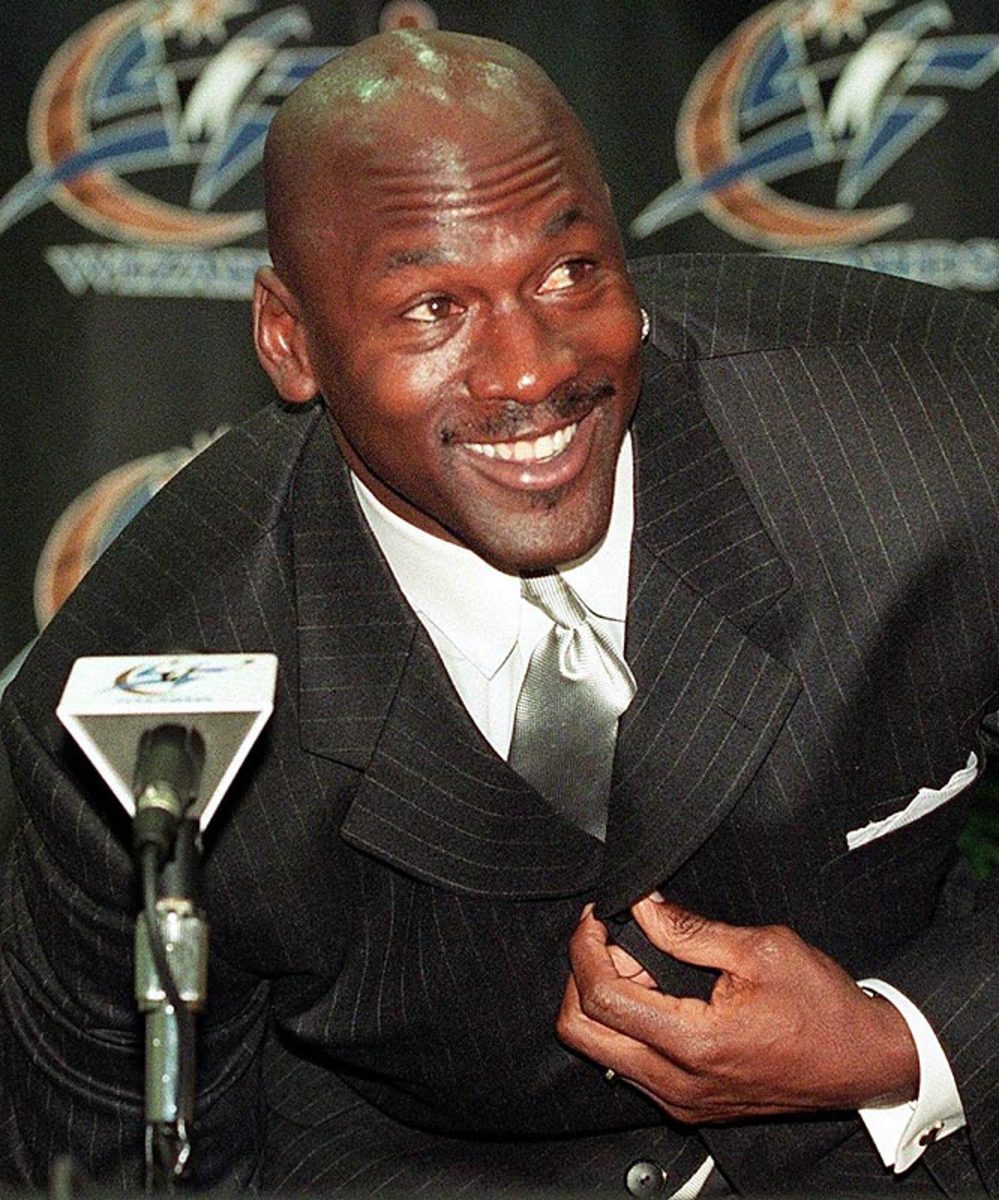
On Jan. 19, 2000, Jordan bought an estimated 10 percent of the Wizards (for between $20 million and $30 million) and became their director of basketball operations. His tenure as personnel boss was marked by missteps that included the selection of Kwame Brown with the No. 1 pick in the 2001 draft.
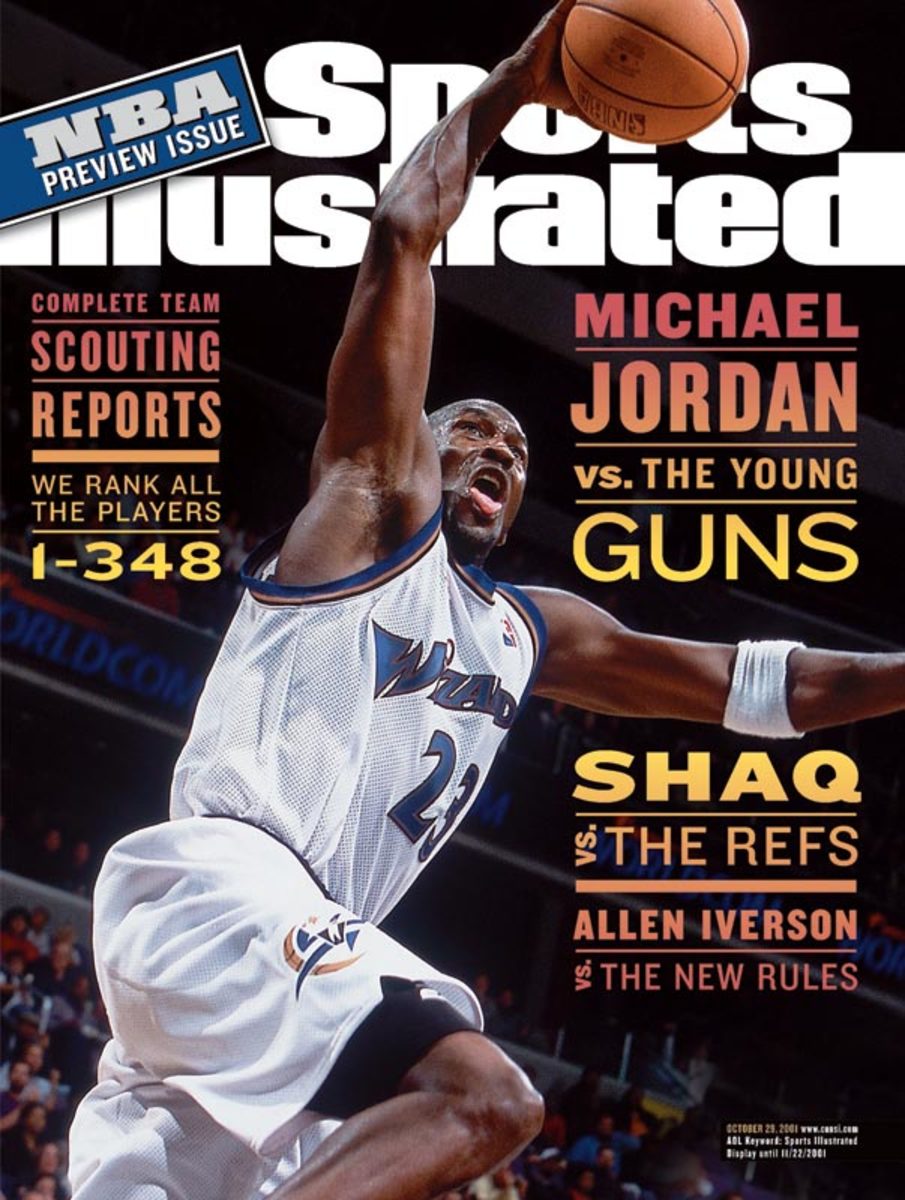
The 38-year-old Jordan ended his second retirement Sept. 25, 2001, signing a two-year contract with the Wizards, who went 19-63 the previous season.

Jordan's first NBA game without the Bulls came Oct. 30, 2001, when he scored 19 points in the Wizards' loss in New York. The Wizards finished 37-45 and failed to make the playoffs that season, with Jordan averaging a team-high 22.9 points but shooting only 41.9 percent from the field.
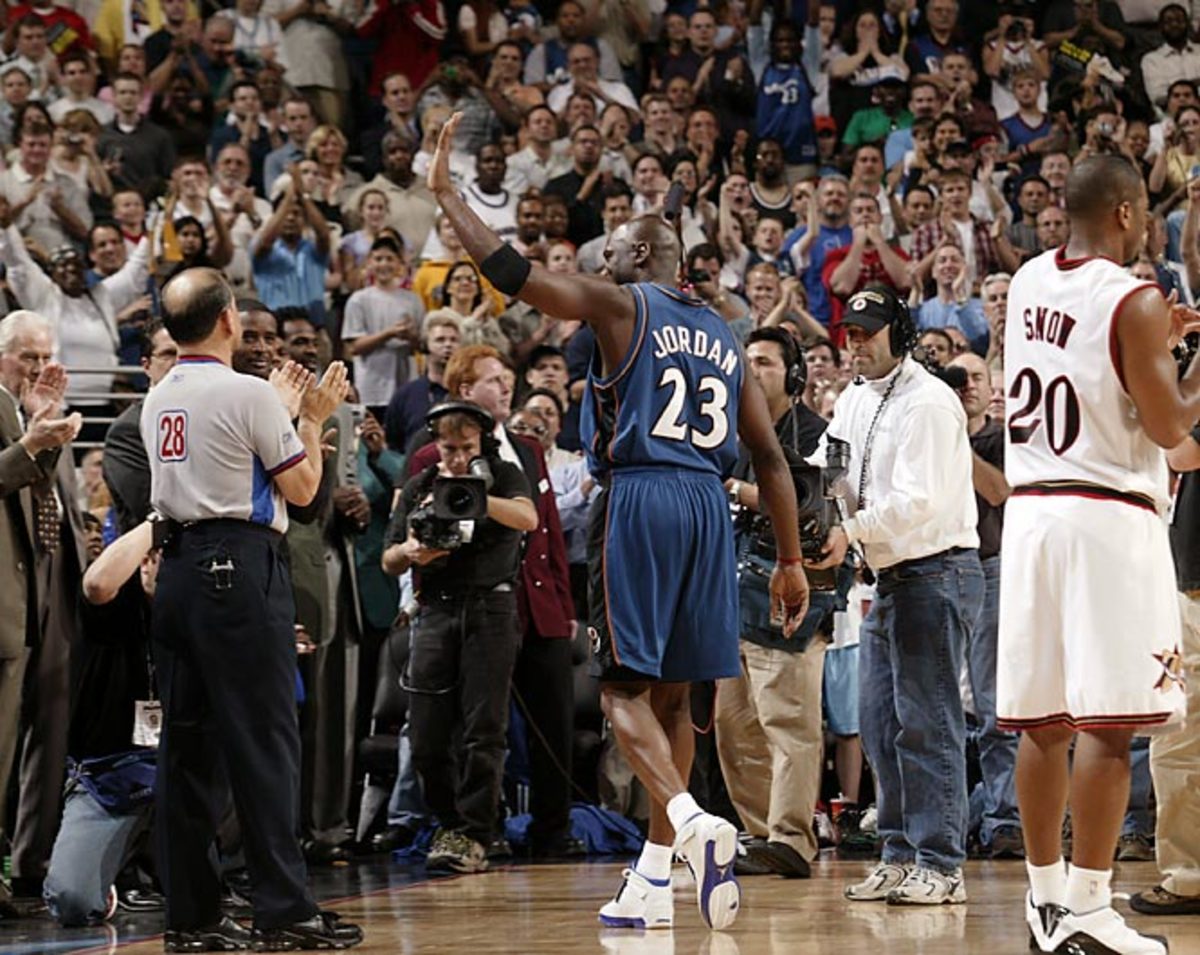
Jordan's second and final season with Washington went much like the first one: He averaged 20 points a game for a 37-45 team that missed the playoffs. In his final NBA game, Jordan had 15 points, four rebounds and four assists in a 107-87 loss at Philadelphia on April 16, 2003.
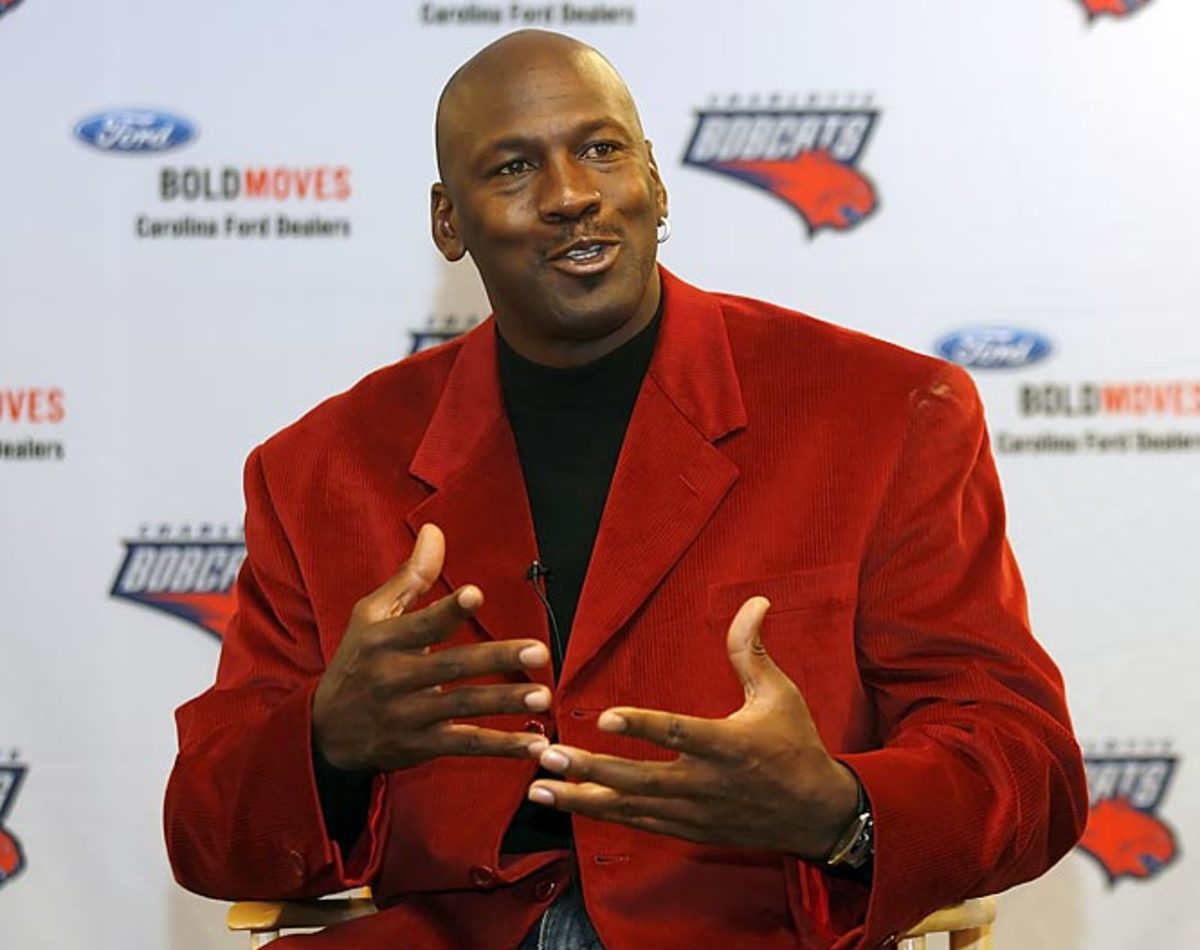
In his second foray into an NBA front office, Jordan became part-owner of the Bobcats in June 2006. Like with the Wizards, Jordan has come under fire for many personnel moves, though the Bobcats made the playoffs for the first time in franchise history in 2009-2010. The team took a step back the following season and is currently on pace to have the worst winning percentage in NBA history.
